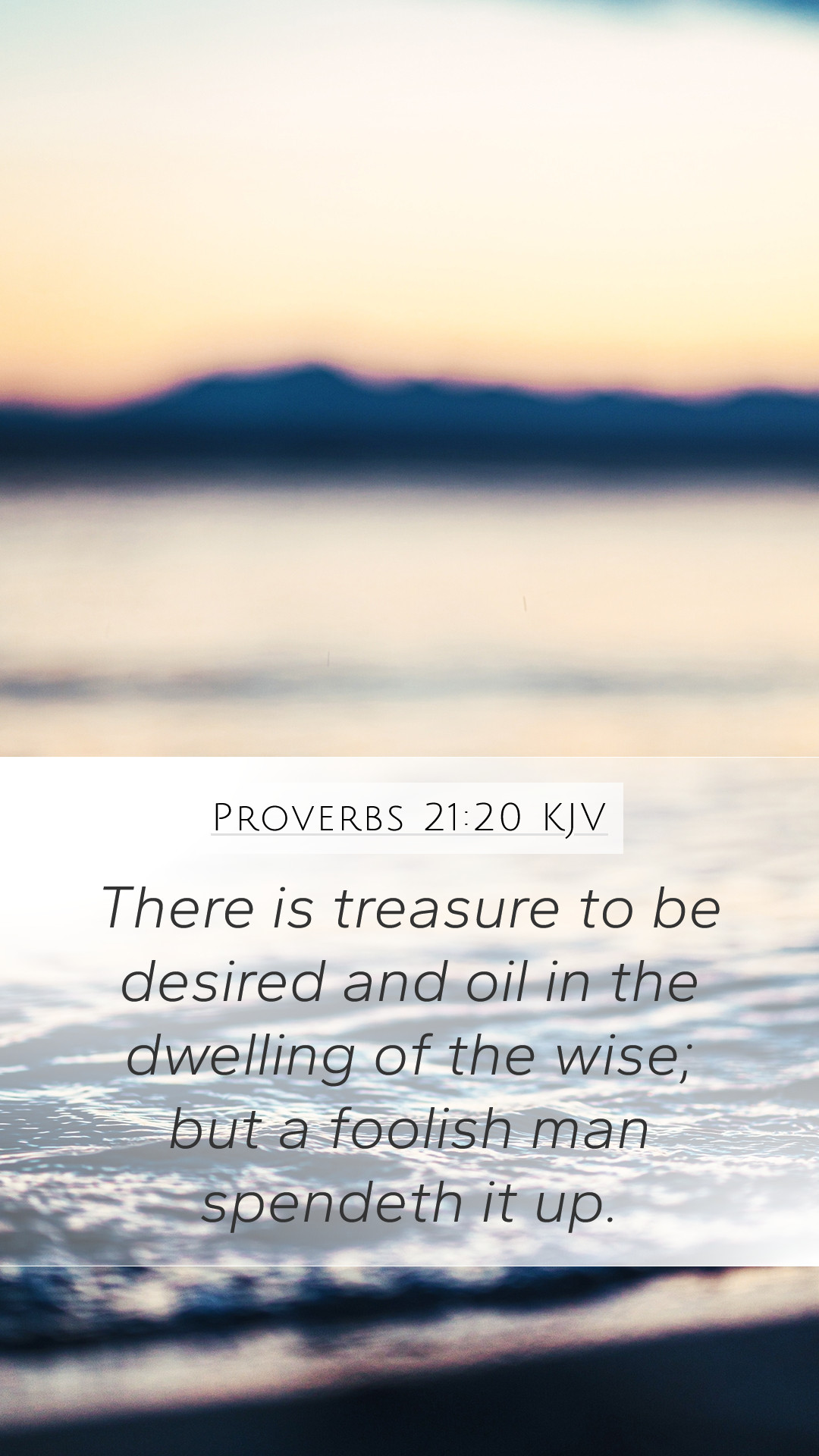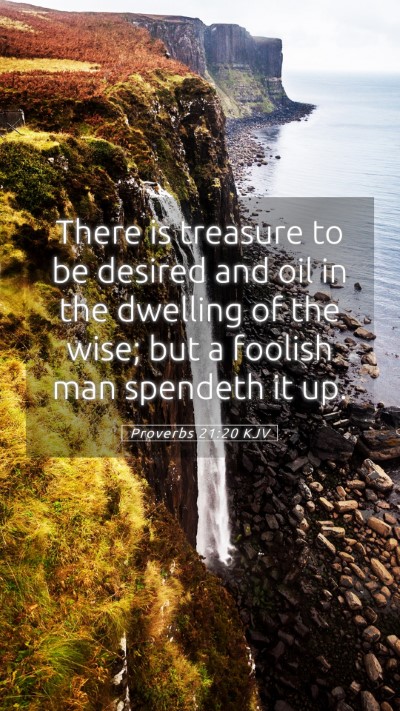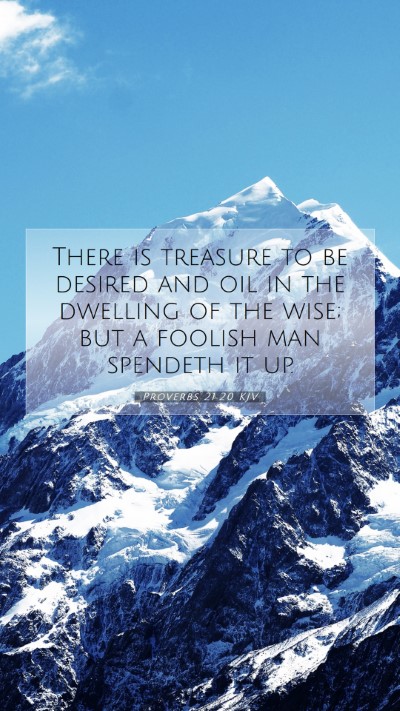Understanding Proverbs 21:20
Bible Verse: Proverbs 21:20 - "There is treasure to be desired and oil in the dwelling of the wise; but a foolish man spendeth it up."
Overview of Proverbs 21:20
This verse illustrates a profound contrast between the wise and the foolish in their handling of resources. The wise are depicted as those who have accumulated treasure and oil, symbolizing both material wealth and wisdom, whereas the foolish squander their resources carelessly. This encapsulates a larger theme present throughout Proverbs relating to wisdom and its practical implications in daily living.
Commentary Insights
- Matthew Henry's Commentary: Henry emphasizes the value of prudence and foresight. He describes the 'treasure' and 'oil' as metaphors for the gains that come from wisdom and sound judgment, suggesting that the wise prepare and save rather than waste resources. He contrasts this with the foolish who spend without thought for the future.
- Albert Barnes' Notes: Barnes underscores the significance of 'oil', stating that it often symbolizes joy and the Holy Spirit in Scripture. He points out that wisdom leads to a richness of both material and spiritual resources. Barnes also cautions against the immediate gratification sought by the foolish, which leads to impoverishment and regret.
- Adam Clarke's Commentary: Clarke provides cultural context, noting how oil was a valuable commodity in ancient economies. He interprets this verse as a warning against extravagance and urges readers to cultivate wisdom that leads to sustainable living. He elaborates that the prudent manage their inheritance wisely while the foolish dissipate resources through lack of self-control.
Key Themes and Applications
The primary themes emerging from Proverbs 21:20 include:
- Wise Stewardship: This verse highlights the importance of managing resources wisely, an essential principle for personal finance and broader decision-making.
- Future Preparedness: It emphasizes foresight and planning ahead rather than living for immediate pleasures, a crucial lesson in both spiritual and material contexts.
- The Value of Wisdom: Wisdom is portrayed as invaluable, leading to better outcomes and blessings, as compared to the folly of recklessness.
Related Bible Verses
For further study and deeper understanding, consider these cross-references:
- Proverbs 10:4 - "He becomes poor that deals with a slack hand: but the hand of the diligent makes rich."
- Proverbs 12:27 - "The slothful man roasts not that which he took in hunting: but the substance of a diligent man is precious."
- Proverbs 13:16 - "Every prudent man deals with knowledge: but a fool lays open his folly."
Application in Daily Life
The message of Proverbs 21:20 can be applied in many areas of life, encouraging individuals to:
- Evaluate their spending habits and prioritize saving for the future.
- Seek wisdom from God and engage in prayerful consideration before making major financial decisions.
- Join Bible study groups or seek Bible study resources that focus on the principles of wise living as laid out in Proverbs.
Conclusion
Proverbs 21:20 serves as a poignant reminder of the dichotomy between wisdom and folly in the management of resources. The insights provided by commentators assist in gaining a deeper understanding of Scripture and applying Bible verse explanations to daily life. Engaging in online Bible study platforms or utilizing Bible study tools can further enhance one's grasp of such Biblical principles.


